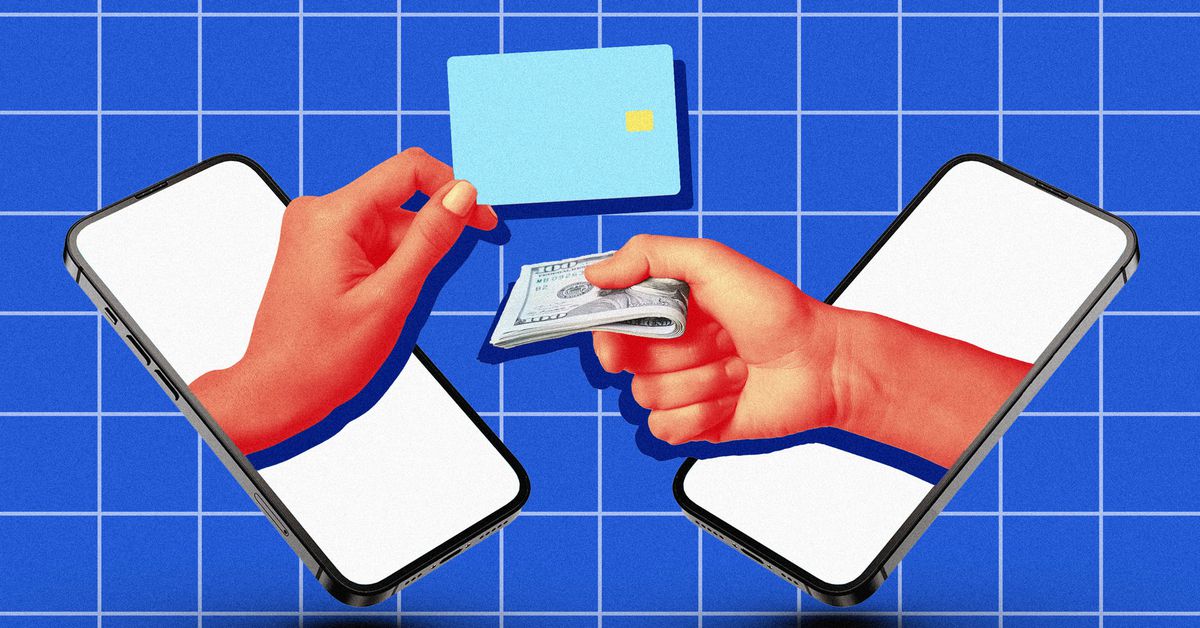- cross-posted to:
- [email protected]
- cross-posted to:
- [email protected]
“If you’re someone who’s buying products on the web, we know who is buying the products where, and we can leverage the data,” Grether said in a statement to the WSJ. He also said that PayPal will receive shopping data from customers using its credit card in stores.
A PayPal spokesperson tells the WSJ that the company will collect data from customers by default while also offering the ability to opt out.
PayPal is far from the only company to sell ads based on transaction information. In January, a study from Consumer Reports revealed that Facebook gets information about users from thousands of different companies, including retailers like Walmart and Amazon. JPMorgan Chase also announced that it’s creating an ad network based on customer spending data, while Visa is making similar moves. Of course, this doesn’t include the tracking shopping apps do to log your offline purchases, too.



Yes but that has been the case for eons. I’m more inclined to be okay with those, just not with some random company that claims to need my sensitive, unchanging information to “allow” me to spend my money. Goes for crypto exchanges as well. I want to jump into Bitcoin for example, but the only way is to use a DEX (already tried, won’t work for me) or to give an exchange this information.
The financial system is screwed. There’s no way to escape the slavery.
The reason they need it is because of the law making it illegal for them not to collect it, though that doesn’t make it any less of a barrier that they have no choice. I would say at this point Coinbase and Kraken are at least as reputable as something like PayPal/Venmo (which I think you can actually also buy crypto from); iirc Coinbase is a publicly traded corporation, has various licenses with governments to operate, is handling custody for major financial institutions now that some crypto ETFs have been approved, it’s not like the early days of crypto where even the biggest exchanges had little real claim to legitimacy.
As for difficulty of using DEX for non KYC trades, I have heard a lot of anecdotes about that confirming your experience that it does not work well. However I would keep an eye on it, there’s significant recent changes with the shutdown of LocalMonero, the launch of Haveno, progress in the development of atomic swaps. I expect that it’s going to improve significantly in usability for the average person, so long as there aren’t major efforts by governments to criminalize it.
I don’t buy that Privacy.com needs it. I use PayPal regularly and never once have I had to give them anything except my name and the credit card info.
That said, I don’t know about Kraken but isn’t Coinbase custodial? I will not use custodial exchanges. In terms of DEXes, I hope they improve because that will be the only feasible solution for me. I tried Bisq, nobody was selling for any less than hundreds of dollars in fiat and I’m kinda nervous about sending cash in the mail even if they have an escrow (as AgoraDesk/LocalMonero did).
If you are comfortable with PayPal you can buy crypto from them afaik, though I am fairly sure you will have to provide additional KYC info than name and credit card, most of the cryptocurrency community obviously hates KYC and there would absolutely be centralized non-KYC options for buying crypto if it wasn’t blatantly illegal to offer that.
That’s totally fair but consider that if your intention is to purchase crypto and immediately withdraw it to a personal wallet, there are zero practical drawbacks to an exchange being custodial because they are only holding your crypto in custody for the brief period of time between when you click the buy button and when you click the withdraw button. A DEX with escrow is going to be less custodial than that, but I would call it still a little bit custodial, since even if the escrow person doesn’t have the option to take your crypto for themselves they could still potentially collude with the seller and send it back to them, which means there is a brief window when the crypto you have purchased is not truly under your personal control. You can have a crypto to crypto dex be perfectly non-custodial (ie. Uniswap), but you can’t have a fiat to crypto exchange be perfectly non-custodial.
The problem with buying crypto in PayPal is that, last I checked, you can’t withdraw it from their ecosystem. I’m not interested in crypto for investment or whatever, I just want to regain some control over my finances. I mostly use cash for everything (part of why I buy in person as much as possible) so I have more control than some but fiat is still largely worthless compared to Bitcoin and other non-gimmick coins.
So, you’re saying that if I use Coinbase, I could withdraw the keys and have full custody over it after I buy it? Then where’s the custodial catch that I always hear about with Coinbase?
They changed that a while ago
Yes. Idk what specific criticisms you’re referring to but probably just related to how it is a centralized exchange, which does have some genuine drawbacks like reduced privacy, for instance they don’t sell Monero or other privacy coins. The reason I also mentioned Kraken is that it is the only fiat gateway exchange that does sell Monero, with other ones if you want to be private you would have to first buy some non-private crypto, then send to a crypto to crypto exchange to buy a privacy coin and go from there. Also there are a lot of people that just buy crypto on Coinbase and never withdraw it, so for them it’s custodial all the way.